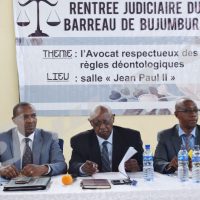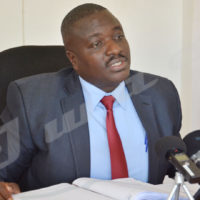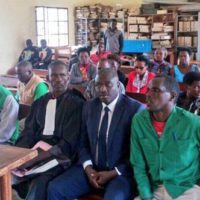Seven years after “zero tolerance” was declared on corruption, Faustin Ndikumana, the chairperson of PARCEM, a local civil rights group, says it has become routine.

“We recommend the government to revive the anti-corruption policy”
Corruption is part of everyday life in Burundi today, and being corrupt is no longer considered taboo, according to the head of the PARCEM, an organisation that tries to change people’s thinking to improve society. Ndikumana deplored the current state of corruption in Burundi while speaking at a press conference held on August 25th in Bujumbura
Ndikumana puts corruption into two groups: petty corruption and grand corruption. For petty corruption, he says that people are getting accustomed to it when dealing with small administrative services. “For a given service, they know what to pay back,” he said.
For grand corruption, he says a number of different government services are impeded by bribery. “We no longer have a right to a public contract. Misappropriation, minerals trafficking, the usage of government finances for personal interest and the abuse of influence have become routine. Today, parents know what to give in order to have access to school for their children. It is really regrettable,” said Ndikumana.
“As the president said in 2012 in commemorating the international day against corruption – ‘where there is corruption there is no economic development’. Bribery reinforces human rights violations,” Ndikumana said.
He appealed to Burundians to change their behaviour so as to eradicate corruption. He also called on the government to revive the anti-corruption policy. “They have all that is required: data, reference documents. They have to take action. The population and specifically young people have to feel concerned. But most of all government have to lead by example”
Burundi is among five poorest countries according to a report done by UNDP. Corruption is one of the causes of this poverty, Ndikumana said.
Iwacu tried to contact the minister of good governance to react to PARCEM Chairperson’s allegations in vain.



















 IWACU Open Data
IWACU Open Data

